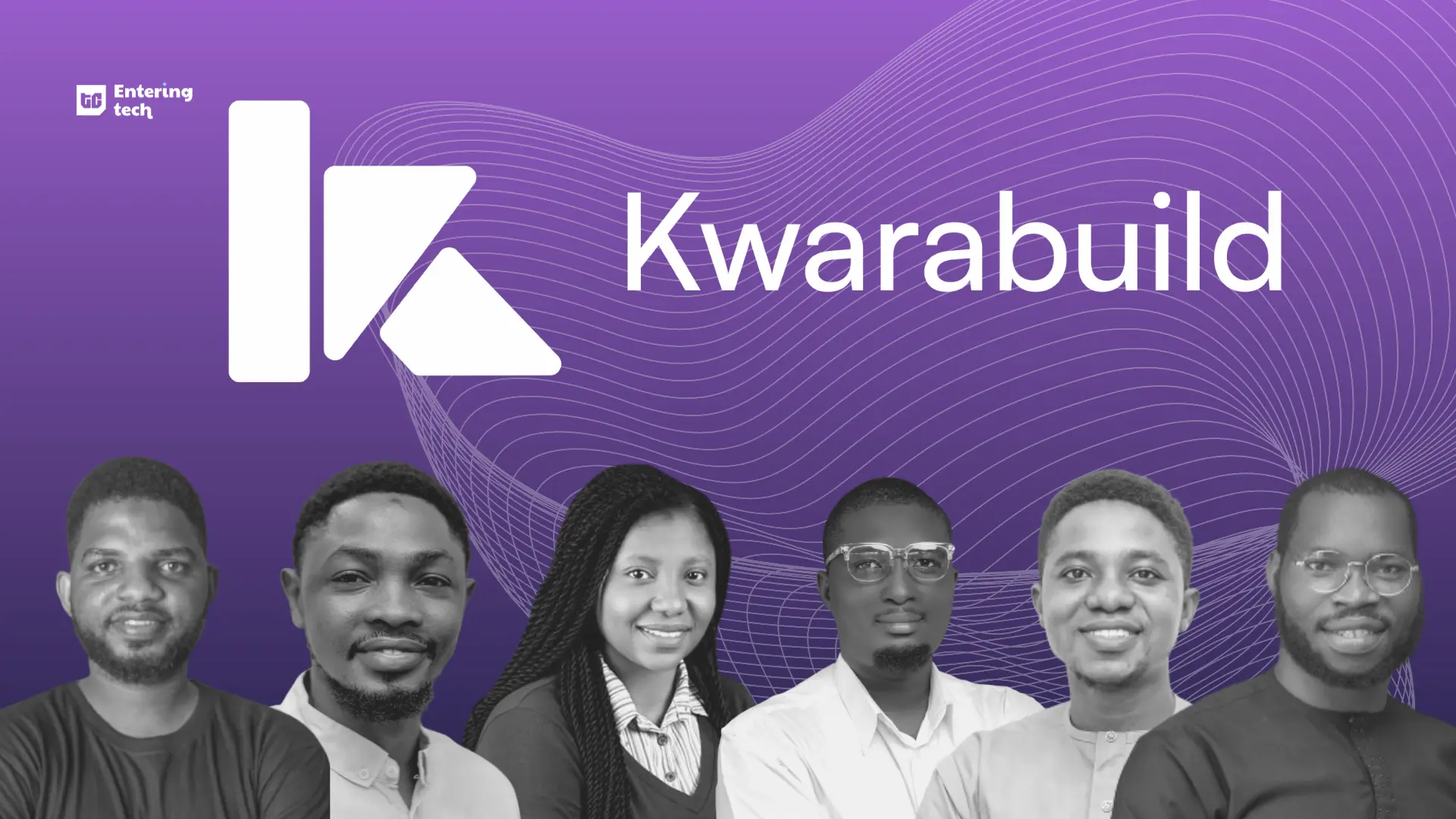

Happy pre-Friday ☀️
Elon Musk wants to turn Twitter—or X—into a dating app, and a payments platform—the “everything” site.
The CEO is following in MTN’s footsteps and wants to be everywhere you go. In what is sure to be a painful but fun journey for employees, the CEO, last week, told Twitter employees that X could replace banks within a year. 🤯
It’s been one year since the Musk takeover and the platform is now worth half what Musk paid for it. The billionaire’s plan for profitability hasn’t taken off yet, but Musk is playing so many cards, one is sure to be an ace—or a joker. 👍🏿
Swvl releases 2022 financial statement

Swvl is driving stealthily.
The Dubai-based mobility company quietly filed its annual report for 2022 on October 31 after previously missing a NASDAQ deadline for submissions.
Dig in: Swvl’s bus-hailing services for business customers grew rapidly in 2022, generating $37.9 million in revenue, a 132% increase from the previous year.
This growth outpaced that of the company’s mass transit business, which brought in $13.6 million. Swvl booked a total of 45.7 million rides across both businesses in 2022, up from 25.9 million the year before. The company processed $56.5 million worth of ride tickets in 2022, compared to $38.4 million in 2021.
The biggest takeaway from Swvl’s 2022 annual report is the company’s financial health. In 2021, Swvl reported total liabilities of $149 million, including $118 million in short-term convertible debt. By the end of 2022, it had successfully converted much of its debt obligations into equity, shaving liabilities worth more than $124 million. Swvl also raised $20 million in equity financing after it successfully sold 12.1 million shares at $1.65 per share in August 2022. The report represents a major turnaround for Swvl, which has endured a turbulent life as a publicly traded company.
Lights out: While Swvl is yet to become profitable, its 2022 financials paint a picture of improved financial health. The changes in its financial results also alleviate much of its business pressures, giving it the breathing space it needs to become a stable and profitable enterprise.
Access payments with Moniepoint
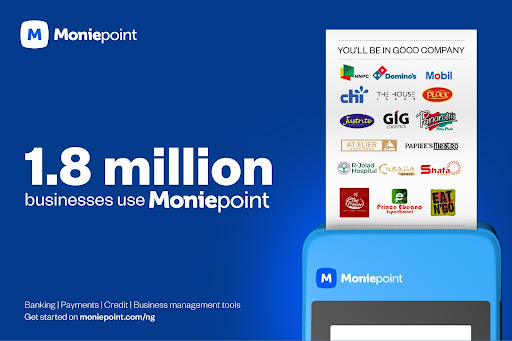
Moniepoint has made it simple for your business to access payments while providing access to credit and other business tools. Open an account today here.
MFS Africa rebrands to Onafriq
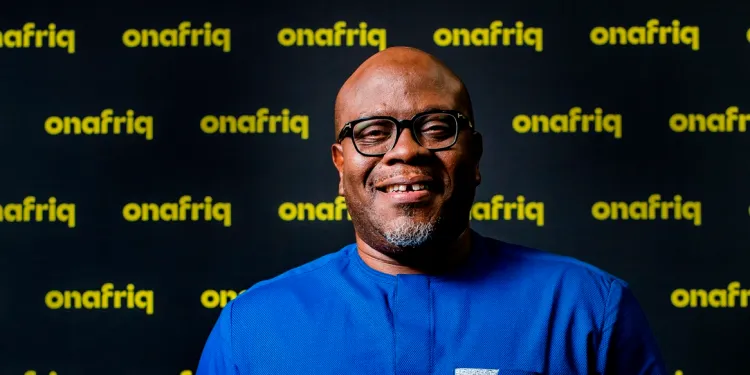
MFS Africa is having a makeover.
The African fintech platform has rebranded to Onafriq.
Why? Per CEO Dare Okoujou, the facelift was due to trademark challenges in the US. Aside from the challenges with the trademark, the Onafriq CEO says the group wanted a name that reflects its true ambition as the business had expanded beyond just mobile financial services and had become an omni-channel platform across Africa and beyond. Last year, Onafriq acquired US-based fintech company Global Technology Partners (GTP) for $34 million in cash and shares.
Onafriq? The name draws inspiration from “Ona”, the Yoruba word for pathways and “Afrique,” the French word for Africa. With a hidden reference to IQ, the name also alludes to the startup’s goal of becoming a leader in intelligent African fintech.
Zoom out: As MFS Africa rebrands as Onafriq, the fintech continues its journey to connect global and regional businesses, mobile network operators, money transfer operators, banks, fintech firms, global development organisations, and online and offline merchants. In November 2022, Onafriq obtained three licenses from the Bank of Uganda (BoU) one year after it acquired Beyonic, a Ugandan-based digital payments services provider for enterprises operating in Ghana, Tanzania, Kenya, and Rwanda.
The evolution of agency banking in Africa

In this longform Decode Fintech piece, Paystack explores agent networks in Africa, how they converge with SMEs, and what the future of agency banking means for how money moves across the continent.
AFEX raises $26.5 million
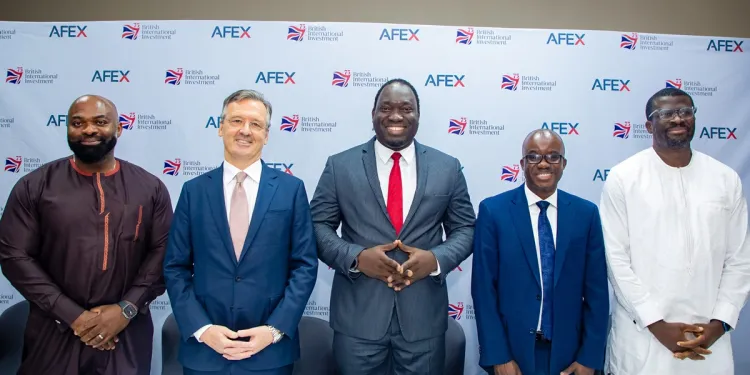
Nigeria-based agritech AFEX has secured $26.5 million in funding.
Yesterday, the British International Investment (BII) signed a new partnership with the agritech that will see the investor commit $26.5 million to the company’s activities.
Founded in 2014, AFEX presently trades over nine commodities across Nigeria, Kenya and Uganda. The company reportedly has 200 warehouses across these locations, and claims to process over $300 million worth of crops on its platform per annum.
Moving forward: AFEX has BII’s investment for the development of 20 modern warehouses strategically located in Nigeria, Kenya, and Uganda. The new warehouses are expected to offer an additional storage capacity of 230,000 metric tons for AFEX. This expanded storage infrastructure will make it possible for approximately 200,000 more farmers to access cost-effective storage solutions and optimise their crop sales.
The potential impact is also noteworthy, with the possibility of boosting farmer incomes by over 200%.
Zoom out: So far, AFEX is hitting its goals. The company also doubled down on its plans for an African expansion with CEO Ayodeji Balogun stating that the company has plans to expand to seven more countries including Ghana, Côte d’Ivoire and Ethiopia by 2024. To meet this goal, Balogun, in May, announced the company’s plans to raise $65 million which would help it boost its storage capacity to 1 million tons.
SA’s WeWork distances itself from WeWork’s bankruptcy plans

The South African franchise of WeWork has announced that its operations are independent of WeWork Global’s bankruptcy filing in the US.
What’s happening? On Wednesday evening, Reuters reported that global coworking space provider WeWork Global was planning to file for bankruptcy in the US. The company, which was valued at $47 billion in 2019, was reportedly struggling to repay debts over $15.9 billion.
The company has struggled since it announced its plans for an IPO in 2019 when questions were raised over the viability of its business model which involves WeWork acquiring properties on long-term leases, and renting them out to others on a short-term basis.
News of WeWork Global’s plan for bankruptcy is not new. In August 2023, the company warned that it could go bankrupt after recording $700 million in losses in the first six months of 2023. So far, the company has recorded over $10.7 billion in losses since 2020.
Its South African franchise isn’t affected: After the announcement—which tanked WeWork’s stock by 38%—WeWork South Africa, the South African franchise of the company, announced that it would not be affected by WeWork Global’s bankruptcy filings.
While WeWork launched its first South African location in 2019, the South African branch, in March, entered a franchise partnership with African real-estate investment company SiSebenza which transferred full ownership of WeWork South Africa to SiSebenza. The partnership also gave SiSebenza the right to open WeWork locations in Nigeria, Ghana, Kenya and Mauritius.
“This means that the recent global actions undertaken by WeWork Global will have no impact on our local operations in South Africa,” the company said in a statement to TechCabal.
Zoom out: It’s unclear at this point when WeWork Global will file for bankruptcy but experts say it could be as early as next week. The company’s other franchise in India has also distanced itself from the bankruptcy filing stating that WeWork India is primarily owned by real estate firm Embassy Group which owns 73% of the company.
Get a 75% scholarsship with Unicaf

Unicaf would like to invite you to an exciting Virtual event that will be held on Zoom!
The event will take place on November 8, 2023, from 12:30 – 13:30 WAT via Zoom. By attending, you can earn up to a 75% Unicaf scholarship to pursue an internationally recognised Master’s or Doctoral degree in the field of your choice from one of Unicaf’s prestigious partner universities in the UK and Africa. Register now to secure your place.
New domains may be coming to South Africa

More domains are coming to South Africa, and Africa at large…and they may not be in English too.
Yesterday, South African publication MyBroadBand announced that ICANN has launched a new campaign that could see South Africa get top-level domains other than .za.
Side bar: ICANN is short for the Internet Corporation for Assigned Names and Numbers and they coordinate who gets to call themselves what across the World Wide Web.
The application will see South African businesses and organisations register with domains tailored to their languages. According to Dandjinou, ICANN hopes to introduce new South African TLDs within 2–3 years.
To achieve this, ICANN is also calling on South Africa to implement its Universal Acceptance policy and enable the use of non-ASCII scripts and characters in domain names, such as Arabic, Chinese, Cyrillic, Greek, Hebrew, Japanese Hiragana and Katakana, Korean Hanja characters, and Vietnamese script.
The present domain names popular today rely on alphabets and characters available on your keyboard, most of which are Latin-based. While non-Latin scripts have existed in domains for some time, they are relatively rare in Africa. Accepting the Universal Acceptance policy and non-ASCII scripts would make it possible to have domains like .sê, tša, or ḓisa.
The big picture: ICANN wants to start with South Africa but it’s hoping the rest of the continent starts to adopt policies that make the internet accessible to people whose first languages aren’t English. If there are keyboards and websites for Arabic and Chinese websites, why can’t African countries have theirs? Would this improve internet penetration across the continent?
Download the PiggyVest Savings Report
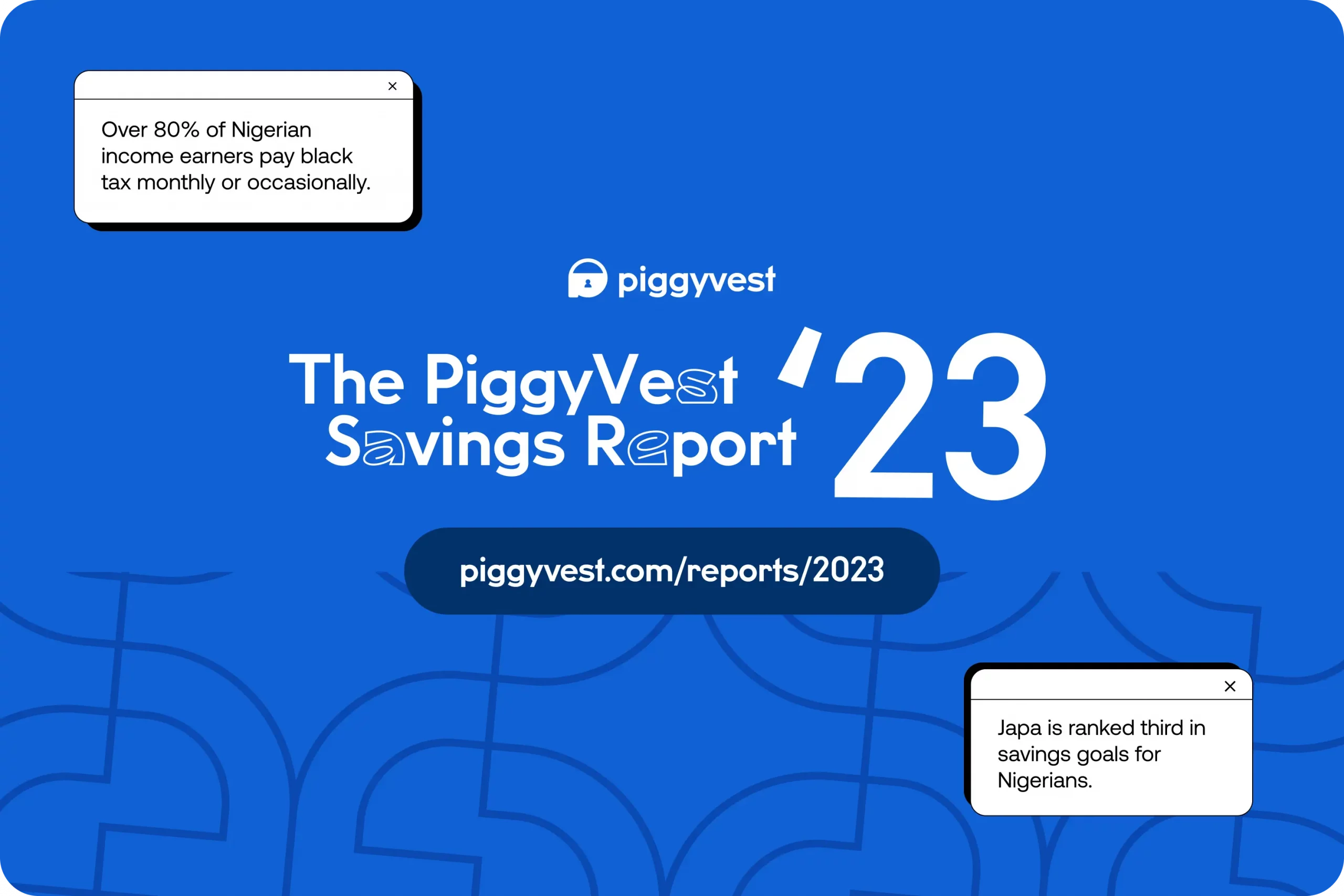
Earlier this year, PiggyVest surveyed thousands of Nigerians about their saving and spending habits. They also asked about debt, unplanned expenses, and plans for the future. The results are in and now available in their first-ever savings report. Get it here.
The World Wide Web3
Source:

|
Coin Name |
Current Value |
Day |
Month |
|---|---|---|---|
| $34,770 |
+ 0.40% |
+ 28.37% |
|
| $1,843 |
+ 1.65% |
+ 10.31% |
|
|
$2.55 |
+ 5.08% |
+ 21.40% |
|
| $42.44 |
+ 16.57% |
+ 76.88% |
* Data as of 21:35 PM WAT, November 1, 2023.

Sourcing for institutional size liquidity for African currencies to G25 currencies including USD, GBP and EUR is a pain. Oneliquidity is Africa’s leading Liquidity provider; we provide the best prices and reliable liquidity for institutional players 24/7 via OTC, API and GUI. Onboard now and start getting quotes.
Crypto players in Kenya are withholding billions of shillings in taxes from Kenya’s revenue collection agency. Business Daily reports that the Block Chain Association of Kenya told the National Assembly that crypto operators in the country could not remit the 3% digital asset taxes it has collected from over four million Kenyans to the Kenyan Revenue Agency (KRA) due to legal restrictions. The KRA has reportedly barred its banks from dealing with the crypto industry so these operators do not have bank accounts they can access or use to pay taxes.
The CEO and CTO of US-based crypto company SafeMoon have been arrested by US authorities. CoinDesk reports that CEO John Karony and CTO Thomas Smith were apprehended by the department of justice (D.O.J.) and are being charged with misappropriating about $200 million of the company’s funds on luxury homes and cars for themselves. The authorities are also on the lookout for founder Kyle Nagy who appears to be complicit.
- If you attended Moonshot by TechCabal, you should read this. Utiva has partnered with TechCabal to give out tech scholarships worth ₦200,000 each, to attendees of Moonshot conference. All you have to do is share a picture of you at the conference, tell us why you need the scholarship, tag us, and use #UtivaScholarship and #MoonshotbyTechcabal.
- The New Venture Competition by the HBS African Business Club is now open to applications. The competition is aimed at fostering and supporting innovative businesses on the African continent. Ten semi-finalists will be invited to pitch their business in front of over 1,000 attendees at the conference, and the three top companies will receive non-dilutive cash prizes of $30,000, $15,000, and $10,000. Apply by November 15.
- The citizens of Commonwealth countries in Africa can now apply for the Commonwealth Africa Cyber Fellowship Programme 2024. Selected experts will serve as fellows for a year, and get exclusive access to academic research opportunities, networking events and annual conferences, with a focus on enhancing cybersecurity policies and institutions across Commonwealth countries in Africa. Apply by December 10.
What else is happening in tech?
Written by – Faith Omoniyi
Edited by – Timi Odueso
Want more of TechCabal? Sign up for our insightful newsletters on the business and economy of tech in Africa.
- The Next Wave: futuristic analysis of the business of tech in Africa.
- Entering Tech: tech career insights and opportunities in your inbox every Wednesday at 3 PM WAT.
- In a Giffy: business decisions powered by data-driven insights and analysis you can trust.
P:S If you’re often missing TC Daily in your inbox, check your Promotions folder and move any edition of TC Daily from “Promotions” to your “Main” or “Primary” folder and TC Daily will always come to you.













